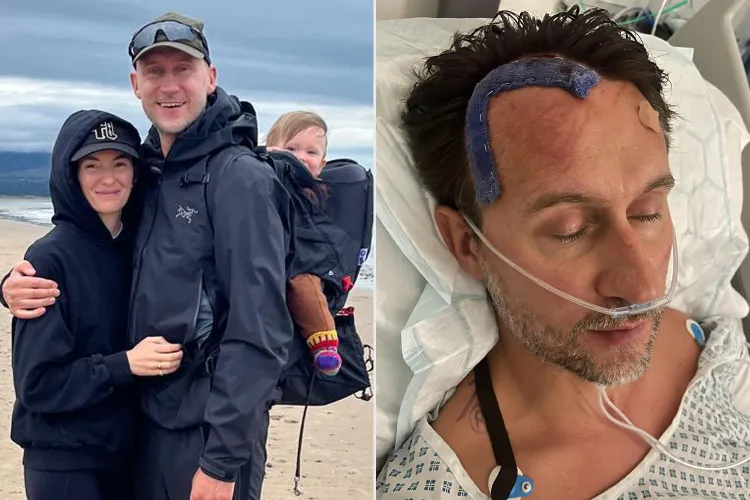He Thought It Was Just a Migraine. It Was So Much More.
What began as a joyful celebration of his son’s first birthday quickly spiraled into a life-altering moment for 42-year-old Thomas Rees. Surrounded by balloons, cake, and family, Thomas began experiencing intense headaches. Within weeks, his world was flipped upside down — doctors revealed he had terminal brain cancer.
According to Wales Online, Thomas, a devoted father and partner from the U.K., had no idea that the headaches he dismissed during his son’s party were the first signs of something far more serious.
The Heartbreaking Diagnosis
Shortly after the party, Thomas visited the hospital as the pain worsened. Scans soon revealed he had an aggressive and inoperable brain tumor. He was diagnosed with glioblastoma — a fast-growing and highly malignant form of brain cancer that often leaves patients with only months to live.
“I just need more time,” Thomas reportedly told his partner and doctors, desperate to see more milestones in his young son’s life.
Fighting for Time and Memories
Determined not to let the diagnosis define him, Thomas began treatment immediately. Chemotherapy and radiation followed, but doctors made it clear that the tumor was not curable. The family has since launched a fundraiser to explore additional treatment options abroad, hoping for just a little more time together.
His partner described the diagnosis as “utterly devastating,” but praised Thomas’s courage and his unwavering commitment to being present for his child.
A Community Rallies Around Him
Support has poured in from friends, neighbors, and strangers. The fundraising page, filled with emotional messages, reflects a shared desire to give Thomas more time with his son — to see another birthday, a first day of school, and the small moments that make fatherhood meaningful.
A Father’s Plea
As Thomas continues his fight, his story is a powerful reminder of how quickly life can change — and how deeply every parent treasures time with their child.
His journey is not over, and he’s holding onto hope for whatever moments the future still holds.
FAQ:
What is glioblastoma?
Glioblastoma is a rare but aggressive type of brain tumor. It is difficult to treat due to its rapid growth and location in the brain. Most patients are treated with surgery, chemotherapy, and radiation, but long-term survival remains low.
How can I help?
You can read more and support the family via the official fundraiser link included in the original story.
Is this condition common in younger adults?
While glioblastoma is more often diagnosed in people over 60, it can also affect younger adults — making cases like Thomas’s especially heartbreaking.

